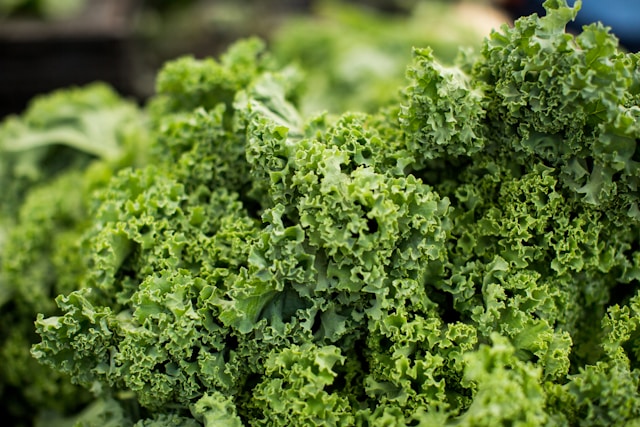Discover the Incredible Mushroom Benefits: Health, Nutrition, and More
August 14, 2022 1 Comment
Mushrooms are a type of fungi that lack chlorophyll and therefore cannot produce their own food through photosynthesis as plants do. Instead, they decompose dead plant matter and release nutrients back into the soil. Most people are familiar with the typical mushroom that you might find in your local grocery store. But are they aware of the mushroom benefits?
These mushrooms, also known as button mushrooms, have a round cap with white gills on the underside. The stem of a mushroom is typically short and thickens towards the base.
The cap is where the majority of the mushroom's spores are produced. However, there are actually thousands of different types of mushrooms, ranging in size, shape, and color.
Some have gills on their undersides while others have pores. While certain mushrooms are poisonous and can be fatal if consumed, others are edible and, when dried, can be used as a flavoring or a meat substitute in a variety of cuisines. Some can even be used to make medicine.
Mushrooms typically grow in moist environments, such as forests or meadows but can be found in a wide variety of habitats including grasslands and Arctic tundra.
In fact, many types of mushrooms are integral to the environment, as they help to decompose organic matter and return nutrients to the soil.
For these reasons, mushrooms are sometimes referred to as the "forest's internet." Mushroom hunting is a popular pastime in many parts of the world, and there are even competitions to see who can find the most mushrooms in a given time period. In some cultures, mushrooms are believed to have magical properties, and they are often used in folk medicines.
While they might not be as well-known as other plants, mushrooms play an important role in the world around us.
History of mushrooms as a part of the diet
Though they are often associated with pests, mushrooms have a long history of being eaten by humans. In fact, mushrooms have been part of the human diet for thousands of years. The Greeks and Romans considered them to be a delicacy, and they were often used as a medicinal Food.
For example, the Roman naturalist Pliny the Elder wrote about a type of mushroom that was enjoyed by the people of his time. In fact, they were one of the first sources of food for our ancestors. The early humans who lived in what is now Europe and Asia likely found mushrooms growing in the wild and quickly learned that they were a nutritious and delicious addition to their diet.
As time went on, people began to cultivate mushrooms, and today there are more than 5,000 different species of mushrooms that are grown around the world. While some people still collect wild mushrooms, the majority of mushrooms that are consumed today are those that have been cultivated.
In ancient times, mushrooms were mostly eaten by poorer members of society who could not afford meat. Today, however, mushrooms are prized by chefs for their unique flavor and texture.
Shiitake mushrooms, for example, are often used in Asian cuisine, while Portobello mushrooms are often used as a meat substitute in Western dishes. While mushrooms were once considered a humble food, they are now celebrated as a gourmet ingredient.
As a result, the history of mushroom consumption is a story of increasing appreciation for this humble fungi.
Nutritional value of mushrooms
Though often thought of as a vegetable, mushrooms are actually a member of the Kingdom fungi, which also includes mold and yeast. Mushrooms are low in calories but high in nutrients, making them a great addition to any diet.
They also contain antioxidants that can help to boost the immune system and help protect cells from damage. One cup of mushrooms contains only 22 calories but provides numerous vitamins and minerals, including Vitamin D, Vitamin B, potassium, and selenium. In addition, mushrooms are a good source of fiber and protein and they contain compounds that may help to protect against cancer.
While there are many different types of mushrooms, the most common varieties are white button mushrooms, crimini mushrooms, and portobello mushrooms. Each type has its own unique flavor and texture, making them ideal for use in a variety of dishes.
The nutritional value of mushrooms makes them a great addition to any diet, especially for those who are looking to lose weight or improve their overall health. Including mushrooms in your diet can help you reach your daily recommended intake of fruits and vegetables and eventually can also help you lower your risk for developing chronic diseases such as heart disease, cancer, and diabetes.
Though often overlooked, mushrooms are a healthy and nutritious food that can be enjoyed in many different dishes.
Mushrooms used in medicine
Many people think of mushrooms as nothing more than a tasty addition to their favorite dish. However, mushrooms have been used for medicinal purposes for centuries. In fact, some of the most popular medicinal mushrooms include Chaga, reishi, and cordyceps.
The earliest recorded use of mushrooms dates back to prehistoric China, where they were used to treat a variety of ailments. Modern science has also confirmed the efficacy of mushrooms in treating certain health conditions.
Health benefits of consuming mushrooms
As any health-conscious eater knows, mushrooms are a great way to add nutrients and flavor to your diet. But did you know that mushrooms can also have some incredible health benefits?
According to ancient Chinese medicine, mushrooms are a valuable source of healing. It has it has been confirmed that mushrooms indeed have significant health benefits.
They are rich in antioxidants and polysaccharides, which boost the immune system. Mushrooms also contain ergothioneine, a powerful antioxidant that helps protect cells from damage keeping your body healthy and looking young.
Additionally, mushrooms are a good source of fiber, which is essential for digestive health. They also contain a type of compound called beta-glucans, which has been shown to boost immunity. Mushrooms are a good source of B vitamins, copper, selenium, and potassium.
These nutrients are essential for proper metabolism, energy production, and nerve function. Studies have also shown that mushrooms can help to lower cholesterol levels and improve cognitive function.
Thus, it is clear that mushrooms are more than just a tasty addition to your dinner plate - they are a true superfood with numerous health benefits.
Mushrooms are a great source of vitamins and antioxidants
Mushrooms are enjoyed by many people around the world for their distinct flavor and versatility in cooking. But mushrooms are more than just a tasty dietary complement. In recent years, mushrooms have gained popularity as a healthy food, and more research is being conducted into their potential health benefits. Some studies have shown that mushrooms can help boost the immune system and improve cognitive function.
They are an excellent source of antioxidants and vitamins, including vitamins C and D, and vitamin B12. Antioxidants help to protect cells from damage caused by free radicals, and they have been linked with a variety of health benefits, including a reduced risk of cancer and heart disease.
The body requires vitamins as vital nutrients to function properly. Additionally, mushrooms contain compounds that can help to fight inflammation. While they can be enjoyed cooked in a variety of ways, mushrooms are best when eaten raw or lightly cooked to preserve their nutrients. So next time you're at the grocery store, don't overlook the mushrooms! They may just be the key to boosting your health.
Also Read: 6 INCREDIBLE HEALTH BENEFITS YOU CAN HAVE BY READING BOOKS
Mushrooms can help improve your immune system
The first line of defense against illness is a strong immune system. One way to help keep your immune system functioning properly is by consuming mushrooms. Recent studies have shown that mushrooms can help improve immune system function.
This is due to the presence of compounds like beta-glucans, a type of carbohydrate, which help to stimulate the production of white blood cells. In addition, mushrooms contain compounds that can help to fight inflammation. Also, mushrooms are a natural source of polysaccharides, which is essential for maintaining a healthy immune system.
Polysaccharides stimulate the production of white blood cells, which are vital for fighting infection. In one study, people who supplemented with mushrooms had a significantly lower risk of developing the common cold. Shaolin hackers use more than two hundred varieties of mushrooms in their preparations.
For these reasons, mushrooms make a great addition to any diet and can be especially helpful for people who are trying to boost their immune systems.
Mushrooms have anti-inflammatory properties
Mushrooms have been used for medicinal purposes for centuries, and modern science is beginning to unlock the many potential health benefits of these fascinating fungi. One area of active research is the anti-inflammatory properties of mushrooms that can help to reduce swelling and pain.
Inflammation is a vital part of the immune response, but when it becomes chronic, it can lead to a host of health problems. The study, which was conducted by researchers at the University of Colorado, found that certain types of mushrooms contain compounds that can inhibit the production of inflammatory cytokines. This is significant because chronic inflammation has been linked to a number of diseases, including heart disease, cancer, and Alzheimer's disease.
While more research is needed to confirm the findings of the study, it provides hope that mushrooms could one day be used to treat or prevent these conditions.
Some studies have also shown that mushrooms can help modulate the inflammatory response, making them a potential natural treatment for conditions like arthritis and asthma.
Certain mushrooms, such as shiitake and maitake, can help to boost the immune system. With further research, mushrooms may someday be used to provide relief from a wide variety of inflammatory disorders.
Mushrooms may help protect against cancer
While there are many factors that can contribute to cancer, diet is one area that you can control. And including mushrooms in your diet may help to lower your risk. Mushrooms contain compounds that can boost the immune system and fight inflammation.
These substances function by preventing the development of cancer cells. One study found that women who ate more than three servings of mushrooms per week had a 64% lower risk of breast cancer. Other studies have found that mushrooms may help to protect against colon, ovarian, and prostate cancer. So make sure to add mushrooms to your next grocery list!
Mushrooms as a source of dietary fiber
Dietary fiber is crucial for maintaining a healthy digestive system and encouraging regularity. Additionally, dietary fiber can help to lower cholesterol levels and prevent heart diseases. It is an important nutrient that helps to regulate digestion and prevent constipation.
Moreover, it supports keeping a healthy weight. Just one cup of mushrooms contains 3 grams of fiber, which is about 10% of the recommended daily intake for adults. Fiber is essential for good gut health, and it helps to regulate digestion and prevent constipation. Also, fiber helps to keep us feeling full after eating, which can be helpful for weight loss.
Mushrooms are a good source of soluble fiber, which dissolves in water and forms a gel-like substance that helps to slow down digestion.
Mushrooms are a healthy addition to any diet because they are a rich source of dietary fiber and have a low calorie and fat content. This makes them an excellent choice for people who are looking to improve their digestive health.
Mushrooms may help regulate blood sugar levels
One of the many benefits is that mushrooms can help to regulate blood sugar levels. As any diabetic knows, regulating blood sugar levels is a delicate balancing act. A sudden spike can lead to dangerous health complications, while a sharp drop can cause dizziness and fatigue. Fortunately, mushrooms may be able to help.
This is because mushrooms contain a type of fiber called chitin, which has been shown to slow down the absorption of sugar into the bloodstream.
As a result, eating mushrooms can help to prevent spikes in blood sugar levels, making them an ideal food for people with diabetes or prediabetes. In one study, participants who consumed mushrooms daily experienced a significant decrease in both their fasting blood sugar levels and their post-meal blood sugar spikes.
The exact mechanism by which mushrooms achieve this effect is not yet known, but researchers believe that it has something to do with the way that mushrooms interact with insulin. Regardless of the underlying cause, there is no doubt that mushrooms can have a positive effect on blood sugar regulation.
Shiitake mushrooms have been used for their medicinal properties for centuries. In recent years, science has begun to back up many of the traditional uses for shiitake mushrooms, including their ability to regulate blood sugar levels.
Studies have shown that shiitake mushrooms can help to control diabetes by lowering blood sugar levels and improving insulin sensitivity. In addition, shiitake mushrooms contain compounds that can help to reduce inflammation and protect against cell damage.
As a result, these mushrooms may offer a natural way to manage blood sugar levels and improve overall health.
Mushrooms help keep you young
Our skin becomes thinner and loses suppleness as we age. Fine lines and wrinkles appear, and age spots may start to form. This can lead to dryness and a loss of radiance. While there’s no magic potion that can keep us looking young forever, a recent study has found that mushrooms may help to slow down the aging process.
The study found that compounds in mushrooms can help to protect the skin from damage caused by ultraviolet light. One of the compounds found in mushrooms called ergothioneine can help protect cells from damage caused by free radicals.
Free radicals are unstable molecules that can cause inflammation and lead to the deterioration of cells.
Ergothioneine is a powerful antioxidant that helps to neutralize free radicals, keeping cells healthy and preventing the signs of aging. The antioxidants can help to reduce the appearance of wrinkles and age spots. Several species of mushrooms are known for their anti-aging properties, including the Reishi mushroom and the Chaga mushroom.
The reishi mushroom has been used for centuries in traditional Chinese medicine to promote longevity.
Modern science is beginning to unlock the secrets of the reishi mushroom. These mushrooms contain compounds that can help to promote collagen production, improve skin elasticity, and reduce inflammation.
They also are a good source of vitamin D, which is essential for bone health. Getting enough vitamin D can help to prevent osteoporosis, a condition that causes bones to become weak and brittle with age.
So, if you’re looking for a natural way to keep your skin looking its best, add mushrooms to your diet. You may just find that they help you stay young and beautiful for years to come.
Mushrooms can lift your mood
According to ancient folklore, mushrooms are often associated with fairies and other magical creatures. In recent years, however, they have been gaining attention for their more down-to-earth benefits. Studies have shown that mushrooms can help to improve your mood and cognitive function.
One of the most popular types of mushrooms is the Lion's Mane mushroom. This mushroom has been used in traditional Chinese medicine for centuries and is now being studied for its potential health benefits. Preliminary research indicates that the Lion's Mane mushroom can help to improve memory and cognitive function. In addition, this mushroom is also known for its anti-inflammatory properties.
Another study found that they can increase levels of two key neurotransmitters, serotonin and gamma-aminobutyric acid (GABA). Low levels of serotonin are linked to depression, while low GABA levels are associated with anxiety. Mushrooms contain potent antioxidants that help to protect the brain from damage.
This is important because cognitive decline is often caused by oxidative stress. Furthermore, they are a rich source of vitamin D, which is essential for maintaining mental health. In recent years, there has been increasing interest in the potential mood-lifting effects of so-called "magic mushrooms."
These mushrooms contain psychedelic compounds that can alter consciousness and cause changes in perception, thought, and emotion. Some studies have suggested that psychedelics could be used to treat conditions like depression and anxiety. As a result, they have the potential to lift your mood and improve your overall health. So next time you're feeling down, reach for a mushroom instead of a candy bar. The outcomes can pleasantly surprise you.
Mushrooms help boost your memory
According to a recent study, eating mushrooms may improve your memory. The study, conducted by researchers at the University of Singapore, found that a compound found in mushrooms called ergothioneine protects brain cells from damage.
Ergothioneine is an antioxidant that has been shown to reduce inflammation and improve cognitive function. The study participants who ate the most mushrooms showed the greatest improvement in memory and cognitive function.
Another study, which was conducted at the University of Westminster, found that participants who ate a daily serving of mushrooms showed significantly improved performance on memory tests.
The researchers believe that the compounds in mushrooms, such as Herceptin and ergothioneine, help to protect brain cells from age-related damage.
Additionally, mushrooms are a source of vitamin B12, which is essential for maintaining healthy nerve function. This means that incorporating mushrooms into your diet could help to keep your mind sharp as you age.
Research has shown that Cordyceps Sinensis, a type of medicinal mushroom, can improve memory and enhance learning ability. Mushroom supplements are now being marketed as memory boosters.
These results suggest that mushrooms may be a valuable addition to the diet of people who are concerned about memory loss.
How to consume mushrooms for maximum health benefits?
A delightful and nutritious complement to any diet is mushroom. There are many different types of mushrooms, but they can broadly be divided into two categories: cultivated and wild. Wild mushrooms should only be eaten if they have been properly identified by an expert, as some types are poisonous.
However, both cultivated and wild mushrooms are packed with nutrients and offer a range of health benefits. Here are a few tips for how to eat mushrooms for maximum health benefits:
1. Choose fresh mushrooms whenever possible. Fresh mushrooms are more nutrient-rich than canned or dried mushrooms. They also have a more pleasant texture and flavor.
2. Slice or chop mushrooms before cooking. This helps them to cook evenly and prevents them from becoming rubbery or tough.
3. Cook mushrooms thoroughly. While some people enjoy eating raw mushrooms, cooking them helps to release their nutrients and makes them easier to digest. When cooking mushrooms, be sure to use a method that will not dry them out, such as steaming or stir-frying.
4. Add mushrooms to a variety of dishes. Mushrooms can be enjoyed in soups, stews, pasta dishes, omelets, and more. Get creative and experiment with different recipes!
The unsung heroes of superfoods, which are less well-known yet include many health advantages, are undoubtedly the mushrooms, even though they might not simply be the colorful ones to make your dishes seem pretty. The next time you're planning a balanced diet, don't forget to include mushrooms in it to reap the many benefits.
References
Kakon, A.J., Choudhury, M.B.K. and Saha, S., 2012. Mushroom is an ideal food supplement. Journal of Dhaka National Medical College & Hospital, 18(1), pp.58-62.
Singh, R., 2017. A review on different benefits of mushroom. IOSR Journal of Pharmacy and Biological Sciences, 12(1), pp.107-111.
Cheung, P.C.K., 2010. The nutritional and health benefits of mushrooms. Nutrition Bulletin, 35(4), pp.292-299.
1 Response
Leave a comment
Comments will be approved before showing up.
Also in Wisdom News

The Importance of Vitamin K2: Unlocking its Role in Health and Wellness
September 22, 2024

The Importance of Omega-3 Fatty Acids: A Comprehensive Review of Their Effects on the Body
August 02, 2024

The Benefits of Mindfulness Meditation for Mental Health
July 12, 2024
Disclaimer: These statements have not been evaluated by the FDA. These products are not intended to diagnose, treat, cure or prevent any disease.
© 2026 Earth's Wisdom®. All Rights Reserved.





Linda
February 26, 2023
Very informative I Love mushrooms of any type the flavors are great a n d now that I know
the benefits I will probably eat them everyday
Thank you for all of the information